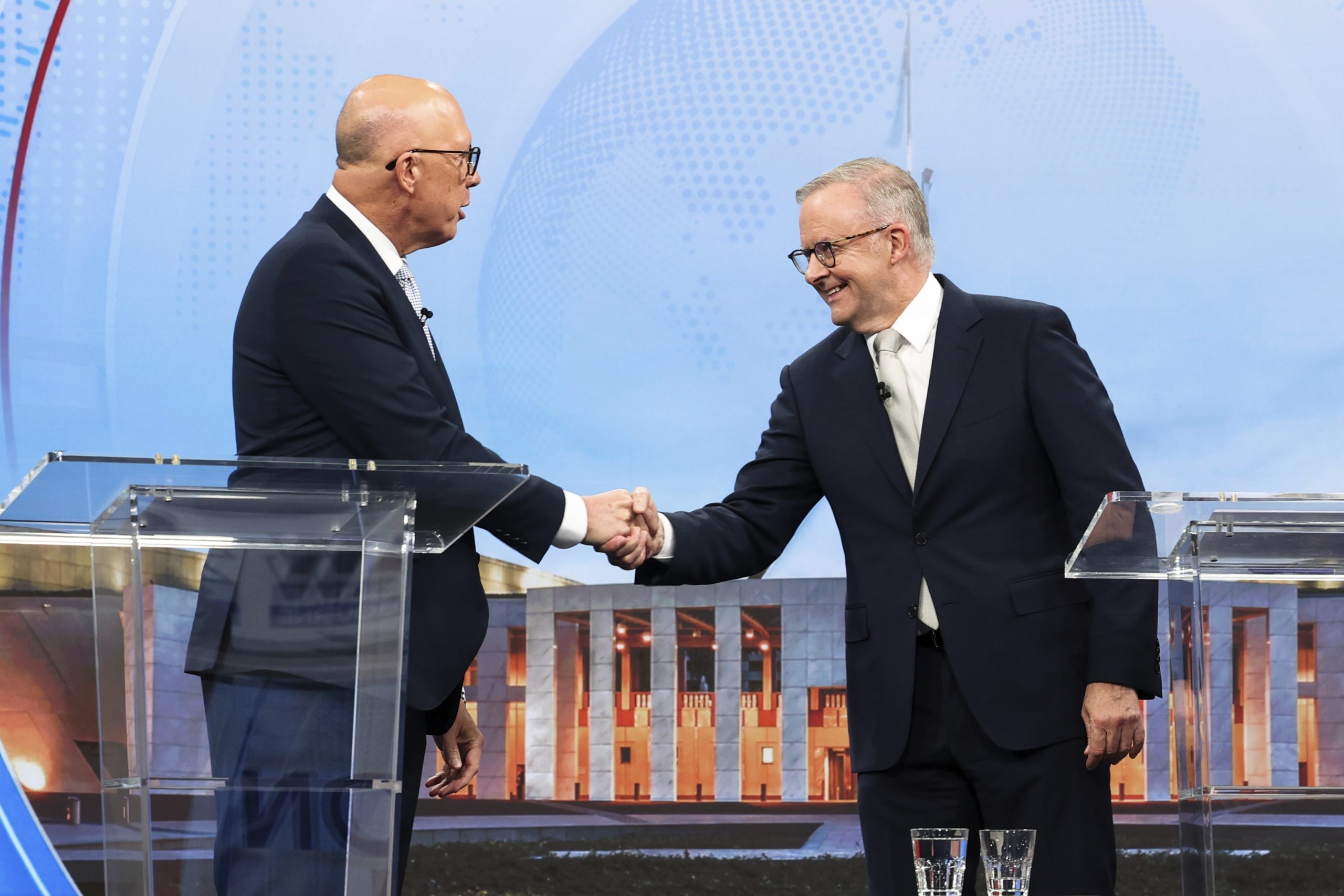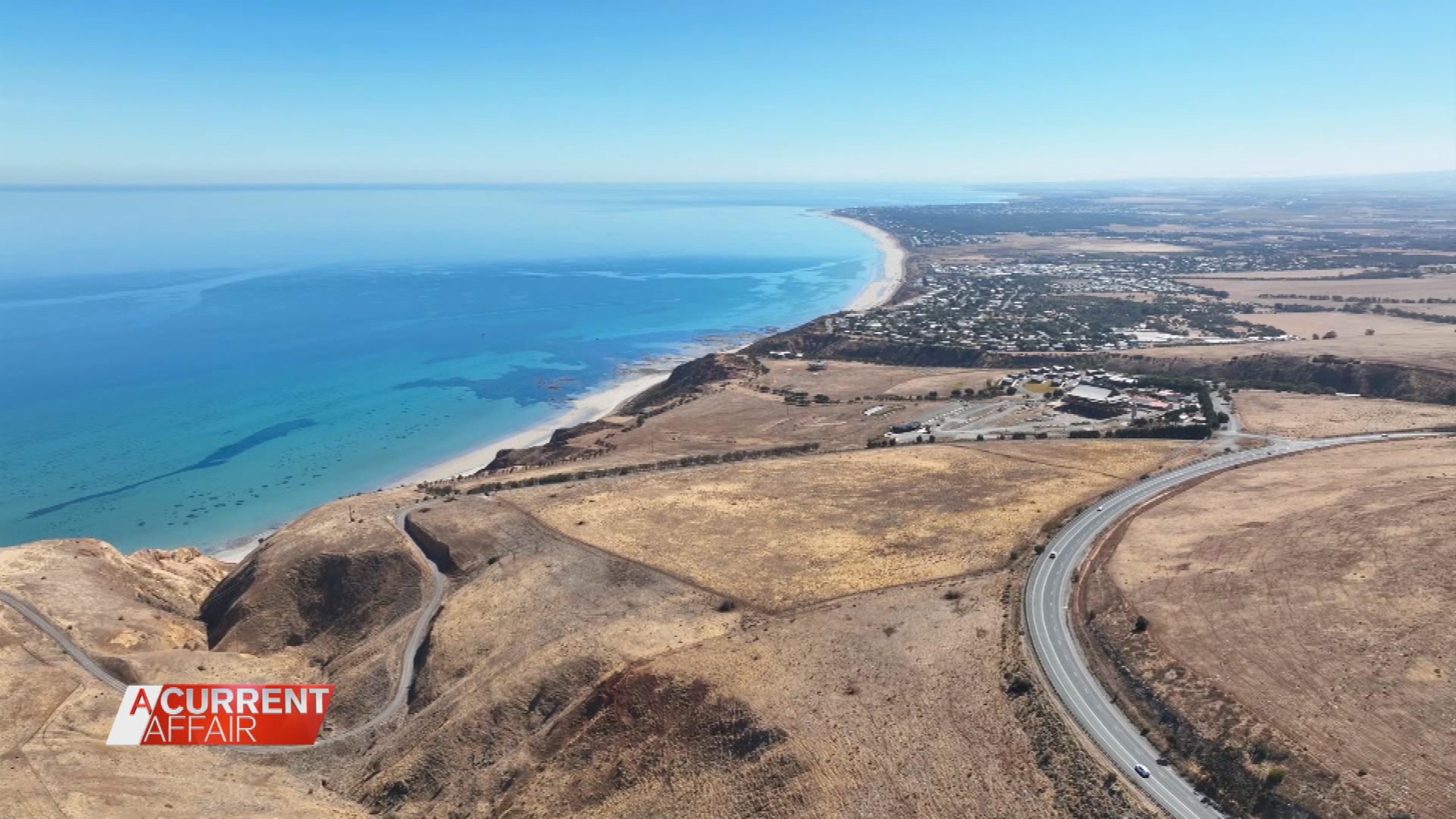Opposition Leader Peter Dutton has narrowly been crowned the winner of a third federal election leaders’ debate marked by multiple heated clashes.
Regular accusations of lying were scattered among arguments on cost of living, energy policy, housing and how to deal with US President Donald Trump on Nine’s The Great Debate tonight.
After the dust settled, the three-person expert panel handed Dutton a tight 2-1 win over Prime Minister Anthony Albanese.
AS IT HAPPENED: Albanese and Dutton clash in third leaders’ debate

Nine political editor Charles Croucher and Nine radio’s Deborah Knight handed narrow wins to Dutton while Australian Financial Review political editor Phil Coorey had Albanese as the slight winner.
“Very close, but I think by far Peter Dutton’s best debate… in my eyes, he won by a nose,” Croucher said.
Accusations of lying
Things got heated early on in the debate when the topic of Medicare came up.
Albanese said the Coalition had “ripped” $80 billion from health and education in the 2014 budget.
Dutton interjected: Prime Minister, you couldn’t lie straight in bed. Honestly, this is unbelievable –
Albanese replied: “You can go to abuse –”
Dutton: “It’s just the reality –”
Albanese: “You can go to personal abuse, that’s a sign of desperation, Peter, frankly –”
Dutton: “As is lying –”
Albanese: “It’s a sign of desperation. Go to the 2014 budget papers. People can do that online. It’s all available for all to see.”
READ MORE: The 10 closest seats heading into the 2025 federal election

An AAP FactCheck published in March found that while Dutton “planned in 2014 to cut hospital spending by $50 billion over the coming decade, his forecast spending reductions did not happen”. The rest of the claimed figure comes from $30 billion in projected savings to education.
It was far from the only time Dutton accused Albanese of lying, which has been a key part of the Coalition’s messaging throughout the campaign.
Other key clashes came on nuclear energy, balancing the budget and how to deal with strongman foreign leaders.
Both leaders have made big spending promises on the campaign trail, principally Labor’s income tax reduction and the Coalition’s temporary cut to fuel excise.
Asked about where he would make savings, Dutton didn’t identify any specific cuts but promised to work with central agencies to “identify where there are problems in the budget”.
READ MORE: Liberal campaign truck crashes into early voting centre

Albanese argued Dutton should identify the specific areas where his government will make savings.
“There will be cuts afterwards. He’s just confirmed that, but they won’t tell you what they are now. That’s just not being fair dinkum,” he said.
Moderator, A Current Affair host Ally Langdon, wasn’t impressed.
“I’m not sure that anyone at home is feeling that either of you are being fiscally responsible at the moment, and we’re really concerned about the level of debt we’re going to be leaving our grandkids,” she said.
READ MORE: The election promises Labor and the Coalition have made to win your vote

Nuclear energy
On energy, Dutton said he was committed to nuclear power because it’s good for the country, “not because it’s politically popular”.
“We’re paying three times the cost of electricity in this country compared to other parts of the world that have nuclear underpinning renewables,” he said.
“We can’t pretend that, as the prime minister and (Climate Change and Energy Minister) Chris Bowen keep talking about, that wind is free and solar is free.
“If that were the case, why have your power bills gone up by $1300 instead of down by $275.”
Albanese pointed out a string of problems with rolling out nuclear energy in Australia, principally a national moratorium and opposition from several states.
“This is a friendless policy because it doesn’t stack up. That’s why the business community signed up to our plan for 43 per cent reduction by 2030. Renewables, but backed by gas, backed by hydro and backed by batteries,” he said.
“And that is what the Australian Energy Market Operator, what all the private sector investors want to do.”

The Trump question
As always, the question of how to deal with US President Donald Trump and other powerful foreign leaders loomed large.
In the last debate, Dutton admitted he’d never met Trump, which was seen by many as a bit of a stumble. He took a different approach this time, stressing that he dealt with the Obama and Trump administrations as a senior minister and attacked Albanese’s efforts to negotiate, saying he “can’t even get a phone call”.
Albanese said the idea Dutton could negotiate an exemption for the latest round of tariffs, which at this point apply to almost every country in the world including many US allies, was “complete nonsense”.

Social media bipartisanship
In the post-debate analysis, Croucher suggested it was the “feistiest” but “also the friendliest” of the match-ups so far.
There was even a brief moment of bipartisanship when both men agreed big tech companies should pay for Australian news and young kids shouldn’t be on social media.
Dutton said the major parties were on a “unity ticket” over the news bargaining incentives and Albanese said the social media ban for under-16s was “world leading”.
They also rose to the task with aplomb when asked to list not one but three things they admired about their rival, with both men listing family as among the other’s greatest achievements.
DOWNLOAD THE 9NEWS APP: Stay across all the latest in breaking news, sport, politics and the weather via our news app and get notifications sent straight to your smartphone. Available on the Apple App Store and Google Play.
